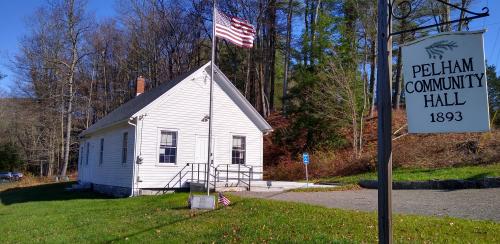Tax Facts
How are Assessments Determined?
Fundamentals
Whatever the property type, the same basic principal applies to choosing an assessing methodology: pick that method which best utilizes available data and which most accurately reflects the real estate market as of January 1. The Town assesses on an annual basis.
Every five years the Town goes through a certification process with the Massachusetts Department of Revenue. According to their guidelines, property values should fall within a range of 10% above or below their full cash value in a recertification year. To establish the values for January 1, 2018, sales of houses that occurred from January1, 2016 to December 31, 2016 were reviewed. These sales were classified and analyzed by building style, age, condition, lot size, price range and location. Market parameters were applied consistently to all properties to arrive at the new Fiscal 2018 valuations. Interim Adjustments are made annually.
Data
The assessing office maintains an extensive database of all properties in Town.
Building permit data is reviewed on an on-going basis. Market data is critical because it is the foundation for all methodologies. therefore, all sale properties are inspected annually and market conditions are reviewed.
1,2,3 Family Properties
Property characteristics and other data such as neighborhood, building area and lot area are critical contributions for analyzing sales. Secondary factors are condition, building quality and street.
Commercial
Net operating income is derived from market studies. Capitalization rates are determined from sales, current mortgage rates and investor expectations.
The Tax Impact
An increase in property valuations does not in itself cause an across-the-board increase in taxes. Since the total Town value has changed, the tax rate will be adjusted to the point necessary to fund the Town budget voted at the 2017 Town Meeting.
The Fiscal Year 2018 tax rate is $20.87.
Overvaluation Appeals & Abatements
After the tax bills are mailed, taxpayers seeking adjustments to their assessed valuations may wish to file abatement applications. State law regulates the abatement process.
Note! Your only appeal window is the month of January. Late applications are automatically disqualified. You are appealing your assessment, not your taxes so you must pay your 3rd quarter tax pending your appeal.
Call for an overvaluation abatement application after you receive the 3rd quarter tax bill, or stop by and pick one up. At the same time you can look at the variety of information available to help you determine whether your assessment is fair and equitable. Ask yourself three questions:
Is my data correct?
Is my value in line with other like homes on my street?
Is my value in line with recent sale prices in my neighborhood?
The staff at the Assessor's Office will be happy to assist you.
Wish to appeal? The application is easy, but make a case and give reasons. We do respond to your specific concerns and comparisons.
Keep in mind what's important: neighborhood, building area and lot size are most critical. Secondary factors are condition, building quality and street. the other factors are relative minor.
Abatement Decision
The Board of Assessors has 90 days to act on formal abatement applications. Notification of all decisions is mailed to the applicant. If your application is approved, you will receive a notice indicating the amount of the Tax Abatement and the assessment reduction. Your abatement will normally be credited toward your May 1st tax bill. If your abatement is granted after your bill is paid you will receive a refund check.
Taxpayers who still disagree with their assessment after notification of an abatement decision have three months to file an appeal with the Massachusetts Appellate Tax Board. Call the ATB at (617) 727-3100 for an application. The application is not difficult, but there is a charge to file and your hearing may not occur for a year or so.
You can also visit the Division of Local Services website at http://www.dls.state.ma.us for additional information. Abatement and Statutory Exemption application forms are available at http://www.dls.state.ma.us/PUBL/FORMS/abatement.PDF.












